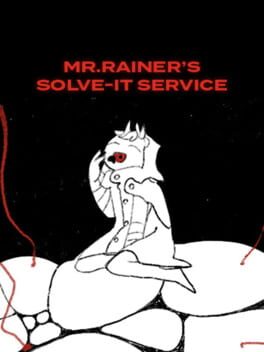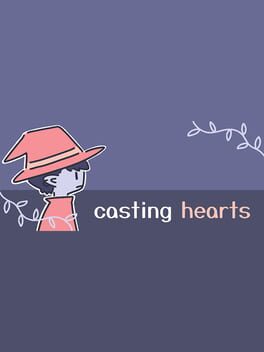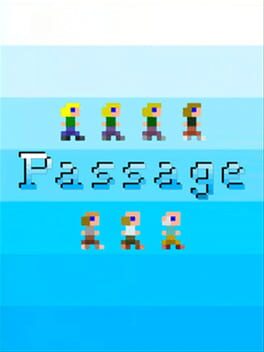heavenly_persona
23 Reviews liked by heavenly_persona
In terms of understanding the all too encompassing 'drive' of consumption, both self made by years and years of false productivity and perhaps even inherently by our own selves, Mr Rainer is the most comprehensive stake on it. On every level even, emotionally, physically, metaphysically, it's all there! And because of that it is so so so draining. It's got buckets of symbolism and weaved online metaphors, it is so Learned on the aftermath of our connected minds and muses poignantly on where that all leaves us.
I think like, just flashing through some highlights real quick:
-the way self-help is recontextualized as a society "sustaining" coping mechanism that at best adds to the noise
-how value is a disgusting mortifying structure that we are required to keep in the back of our minds to exist, where its true attainment is in real connection. And how it's the only real warmth seen in this cold dying world.
-on that topic, how much I really want to just cuddle with Rene right now. Please.
-how each character and thread deals dually with sating hunger as it is in creating more of it
-despite being super gestural about many different things the raw imagery manages to evoke exactly what's happening to you/what you should be thinking about at any given moment
-that this game looks SOOO fucking visually good there's not a thing i can think of since El Shaddai that has swept me off my feet with its incredible choice in style and drawing. Also the music, 'mwah
-that this one managed to make me laugh the most out of etherane's black comedy catalog by embracing my terminally online memetic qualities like personality tests
This is not including lots and lots and lots more to think about!! I don't think I even really scratched the surface on its particularly heavy social media commentary (there are a couple things I won't talk about though because I doubt they'd ever get a real conversation otherwise), or just how the work communicates its lore and world! And how that actually just ends up defining the characters.
God it's SOOO good <3 I'm going to be a rainer stan until I die
I think like, just flashing through some highlights real quick:
-the way self-help is recontextualized as a society "sustaining" coping mechanism that at best adds to the noise
-how value is a disgusting mortifying structure that we are required to keep in the back of our minds to exist, where its true attainment is in real connection. And how it's the only real warmth seen in this cold dying world.
-on that topic, how much I really want to just cuddle with Rene right now. Please.
-how each character and thread deals dually with sating hunger as it is in creating more of it
-despite being super gestural about many different things the raw imagery manages to evoke exactly what's happening to you/what you should be thinking about at any given moment
-that this game looks SOOO fucking visually good there's not a thing i can think of since El Shaddai that has swept me off my feet with its incredible choice in style and drawing. Also the music, 'mwah
-that this one managed to make me laugh the most out of etherane's black comedy catalog by embracing my terminally online memetic qualities like personality tests
This is not including lots and lots and lots more to think about!! I don't think I even really scratched the surface on its particularly heavy social media commentary (there are a couple things I won't talk about though because I doubt they'd ever get a real conversation otherwise), or just how the work communicates its lore and world! And how that actually just ends up defining the characters.
God it's SOOO good <3 I'm going to be a rainer stan until I die
Celeste
2018
A phrase nobody has ever heard before: "Disco Elysium is well-written." Bah! How well-written could a video game be?
...very, it turns out.
Disco Elysium, as a piece of media, stands toe to toe with grandiose works of the magnitude of Bulgakov's Master and Margerita, or Musil's The Man Without Qualities. Disco Elysium not only takes, but bull's-eye nails shots that even a lot of political works outside of games don't even take. It goes places; it is desperately, meticulously nuanced - often in ways close to total discomfort - without being scared to take a stance.
The point of the above is (apart from heaping praise, seriously this is a once-in-a-decade game) to prepare you for a lot of reading. The voice acting is good throughout (not perfect, but good), but it's still a game that requires you follow its text closely. It drains one's focus pretty heavily.
Also, the two book comparisons above were not innocent. If you know what I mean, then sorry for the slight spoilers - but this is not only a very funny, but a heavy game, too. With decent knowledge of world history (especially the first two world wars, in Europe or elsewhere), it is abyssal in its implications about the past and the now. If you don't have that knowledge, you will likely miss a lot of what this game is doing! Which would be a shame.
This being said: The games writer in me is has nothing but praise. Disco Elysium is a game that is aspirational to anyone seeking to create stories, characters, worlds, and change. If you are a CRPG fan, check it out. If you ever enjoyed a book, read this next. If you like video games at all, then play it, too.
...very, it turns out.
Disco Elysium, as a piece of media, stands toe to toe with grandiose works of the magnitude of Bulgakov's Master and Margerita, or Musil's The Man Without Qualities. Disco Elysium not only takes, but bull's-eye nails shots that even a lot of political works outside of games don't even take. It goes places; it is desperately, meticulously nuanced - often in ways close to total discomfort - without being scared to take a stance.
The point of the above is (apart from heaping praise, seriously this is a once-in-a-decade game) to prepare you for a lot of reading. The voice acting is good throughout (not perfect, but good), but it's still a game that requires you follow its text closely. It drains one's focus pretty heavily.
Also, the two book comparisons above were not innocent. If you know what I mean, then sorry for the slight spoilers - but this is not only a very funny, but a heavy game, too. With decent knowledge of world history (especially the first two world wars, in Europe or elsewhere), it is abyssal in its implications about the past and the now. If you don't have that knowledge, you will likely miss a lot of what this game is doing! Which would be a shame.
This being said: The games writer in me is has nothing but praise. Disco Elysium is a game that is aspirational to anyone seeking to create stories, characters, worlds, and change. If you are a CRPG fan, check it out. If you ever enjoyed a book, read this next. If you like video games at all, then play it, too.
Silent Hill
1999
This review contains spoilers
You're very fortunate if you happened to have not grown up in a religious household. Not all religious households are awful, of course, but many are. The structure and hierarchy of a lot of organized religions lead to a lot of abuse and damage.
A lot of my fellow queers have experienced this firsthand. I won't go into specifics here, one for privacy reasons and two for the fact that you probably know the story already. Organized religion, especially the big ones like Christianity, aren't often kind to us, in spite of what their belief systems say. It's one of the most often used excuses for violence - whether that be ostracizing people or outright killing them.
It's no surprise, then, that Silent Hill resonates a lot with queer people, even if that wasn't really the original intent. In many ways, it itself is a game about dealing with religious abuse and the scars that it leaves on a community, the way that cult-like mentalities can be integrated so easily into family models.
Alessa is the victim in this situation, to her abusive mother and the main villain, Dahlia. Alessa was only born in order to serve as the mother for the cult's god - and in doing so, was forced to do horrible things for the church. Even though the source of my familial abuse wasn't religious, it was very uncomfortable how familiar the scenes where Dahlia guilted Alessa into using her powers or being experimented on were. It all culminates in Alessa being forced to become god by merging with her other half - the half that she wanted to give new life away from the town of Silent Hill.
Alessa's abuse formed the twisted, feverish dream that is Silent Hill, a town where nothing ever feels right because it's not right itself. A town born out of religious trauma, from Alessa's own horrible experiences. From her horrible experiences in school to her many stays in the hospital from her abuse (including her own mother trying to torch her to death), it's all reflected here.
And that's the truest horror. Just a poor, scared little girl who's been betrayed by everything that was supposed to protect her. As so many of us were when we were young.
A lot of my fellow queers have experienced this firsthand. I won't go into specifics here, one for privacy reasons and two for the fact that you probably know the story already. Organized religion, especially the big ones like Christianity, aren't often kind to us, in spite of what their belief systems say. It's one of the most often used excuses for violence - whether that be ostracizing people or outright killing them.
It's no surprise, then, that Silent Hill resonates a lot with queer people, even if that wasn't really the original intent. In many ways, it itself is a game about dealing with religious abuse and the scars that it leaves on a community, the way that cult-like mentalities can be integrated so easily into family models.
Alessa is the victim in this situation, to her abusive mother and the main villain, Dahlia. Alessa was only born in order to serve as the mother for the cult's god - and in doing so, was forced to do horrible things for the church. Even though the source of my familial abuse wasn't religious, it was very uncomfortable how familiar the scenes where Dahlia guilted Alessa into using her powers or being experimented on were. It all culminates in Alessa being forced to become god by merging with her other half - the half that she wanted to give new life away from the town of Silent Hill.
Alessa's abuse formed the twisted, feverish dream that is Silent Hill, a town where nothing ever feels right because it's not right itself. A town born out of religious trauma, from Alessa's own horrible experiences. From her horrible experiences in school to her many stays in the hospital from her abuse (including her own mother trying to torch her to death), it's all reflected here.
And that's the truest horror. Just a poor, scared little girl who's been betrayed by everything that was supposed to protect her. As so many of us were when we were young.
Casting Hearts
2022
npckc is a creator who’s never shied from making games directly based on the joys and frustrations in their personal life. Obviously this is not an uncommon thing in media but considering the genres that mainstream games skew into vs the extreme indie scale and intimate scope of kc’s work I do think these traits are more notable in their ouvre than they might be in, say, John Carmack or Shinji Mikami’s. Casting Hearts, to cut to the chase, is a covid game, in the flavor of “god dude I know you weren’t expecting to play a two-years-deep covid game but cards on the table I wasn’t expecting to be one either so, fuck, I guess.”
Casting Hearts is a one-scene game where you step into the role of Marjoram, a student of indeterminate gender (and species) at some kind of magical university doing their gosh darn damndest to treat their girlfriend Ginger to a lovely birthday date, or at least the loveliest approximation of one Marjoram can muster via some spellcasting and a crystal ball skype call. It’s a short game and mechanics-light, with only a few aesthetic changes and branching paths via the frequent dialogue options, but I found some nice variation and flavor to explore across two playthroughs and two endings I saw in not quite an hour of playtime.
The game is as sweet as it looks, but anyone familiar with npckc’s work will know that while this isn’t a straight up melancholia like all things equal i would prefer it if we were safe & lonely instead of together & afraid but i cannot deny that it is hard; or: a solitary spacecraft, the treacly art style doesn’t mean the game won’t take its characters seriously or treat their problems respectfully and with import. this is a game about making the perfect mind palace cake for your girlfriend and giggling over the goofy whale that’s waving to you from the waters of the astral beach that your date overlooks, but it’s as much a game about the pressure Marjoram puts on themself to make that date perfect because everything else is so imperfect and this is the best they can do; about being angry at what the world has taken from us, in people, in time, in life experience; fear about how much longer this will go on and the certainty that we’re just not built for the kind of solitude a lot of us are forced into by necessity these days (or force ourselves into, if we must, which is harder, and gets harder every day).
But that’s not all there is either, I’m not just here like “broooo this CUTE game is actually KIND OF DARK” lol I’m not thirteen. These characters are people and they’re in a relationship and life is hard, right? They talk to each other, and there are multiple ways for things to break bad in this game that revolve around how forthcoming you the player are with Marjoram’s anxieties vs. the mask of Perfect Party Purveyor. At the end of the day though, regardless of how thoroughly feelings get hashed out or left a bit hanging by the end, these are people who are here for each other as much as they can be and that’s not nothing.
npckc is one of my favorite game creators working right now because they’re so good at balancing these tones. Their work does aim to please, of course, I mean like, look at it right? But it always comes tinged with a deft realism. There’s never a sense that things that are difficult or uncomfortable are being shied away from or deflected in the name of being cozy or wholesome. Instead these games insist that we can and must find comfort where we can get it within the hardship. It’s always going to be hard, and it’s always going to be worth it – not always in equal measure, but our loved ones are there to help up out when we need it, if we can find the strength to ask.
It's a balanced experience, one that in a very short amount of time encompasses two years’ worth of bad feelings and what we’ve made in the wreckage of them. npckc has been experimenting a lot lately with a lot of really micro-sized projects and I appreciate how emotionally substantial they almost always are, it’s the real magic touch that’s made me so attached to them as a creator. And now that I know how to add games to IGDB and therefore backloggd it’s over for you fuckers I’m adding them all bay bee.
Casting Hearts is a one-scene game where you step into the role of Marjoram, a student of indeterminate gender (and species) at some kind of magical university doing their gosh darn damndest to treat their girlfriend Ginger to a lovely birthday date, or at least the loveliest approximation of one Marjoram can muster via some spellcasting and a crystal ball skype call. It’s a short game and mechanics-light, with only a few aesthetic changes and branching paths via the frequent dialogue options, but I found some nice variation and flavor to explore across two playthroughs and two endings I saw in not quite an hour of playtime.
The game is as sweet as it looks, but anyone familiar with npckc’s work will know that while this isn’t a straight up melancholia like all things equal i would prefer it if we were safe & lonely instead of together & afraid but i cannot deny that it is hard; or: a solitary spacecraft, the treacly art style doesn’t mean the game won’t take its characters seriously or treat their problems respectfully and with import. this is a game about making the perfect mind palace cake for your girlfriend and giggling over the goofy whale that’s waving to you from the waters of the astral beach that your date overlooks, but it’s as much a game about the pressure Marjoram puts on themself to make that date perfect because everything else is so imperfect and this is the best they can do; about being angry at what the world has taken from us, in people, in time, in life experience; fear about how much longer this will go on and the certainty that we’re just not built for the kind of solitude a lot of us are forced into by necessity these days (or force ourselves into, if we must, which is harder, and gets harder every day).
But that’s not all there is either, I’m not just here like “broooo this CUTE game is actually KIND OF DARK” lol I’m not thirteen. These characters are people and they’re in a relationship and life is hard, right? They talk to each other, and there are multiple ways for things to break bad in this game that revolve around how forthcoming you the player are with Marjoram’s anxieties vs. the mask of Perfect Party Purveyor. At the end of the day though, regardless of how thoroughly feelings get hashed out or left a bit hanging by the end, these are people who are here for each other as much as they can be and that’s not nothing.
npckc is one of my favorite game creators working right now because they’re so good at balancing these tones. Their work does aim to please, of course, I mean like, look at it right? But it always comes tinged with a deft realism. There’s never a sense that things that are difficult or uncomfortable are being shied away from or deflected in the name of being cozy or wholesome. Instead these games insist that we can and must find comfort where we can get it within the hardship. It’s always going to be hard, and it’s always going to be worth it – not always in equal measure, but our loved ones are there to help up out when we need it, if we can find the strength to ask.
It's a balanced experience, one that in a very short amount of time encompasses two years’ worth of bad feelings and what we’ve made in the wreckage of them. npckc has been experimenting a lot lately with a lot of really micro-sized projects and I appreciate how emotionally substantial they almost always are, it’s the real magic touch that’s made me so attached to them as a creator. And now that I know how to add games to IGDB and therefore backloggd it’s over for you fuckers I’m adding them all bay bee.
Commonplace
2022
This review contains spoilers
As we do the menial tasks that make up our lives, the ones full of monotony and repetition, there's sort of a trance-like state that we end up entering. We get more space to think about our circumstances. The low hum of the computers in an office room accompanies our every idea, a comfort instead of an annoyance. It's normalcy. It's safety.
Whenever I think about this idea, of getting in my head as a product of monotony, I inevitably end up thinking about Pathologic. In that game, you spend most of your time walking from place to place at a snail's pace, making very little progress in keeping those you're supposed to protect - including yourself - alive. It's a brazen, bold way of designing a game, to be intentionally "boring" in this way. Yume Nikki has some similar blood, but I think that its visuals are much more fantastic and full of intrigue, there's always something to catch your eye on your long walks through the dreams of Madotsuki.
Despite this, Pathologic is still full of weird characters and writing choices that end up keeping the player engaged in that time in-between walks. Its world is fairly fantastical in its portrayal. Bizarre creatures roam the small town on the steppe that are simply treated as normal, and one character has a doppelganger of herself that is never properly explained. But the game Commonplace is a game only made up of these moments of nothingness for quite a long time - and captures them much more eloquently.
An interesting choice made throughout the beginning of Commonplace is that all forms of conflict are avoided as soon as they may become an issue. An ethernet cable gets fried? It's never brought up again. A man is having problems with his marriage? While it informs his character, it's never something taken as needing to be solved. Commonplace depicts the complacent, a status quo that not only is unchallenged, but is beloved. Our main character adores it, and the only people with strong feelings about it wish to regress it backward, like the main character's boss who constantly talks about the "good ol' days". Our main character themself, Sam, is particularly in love with things staying the same as they are - which is why things changing so quickly is so distressing.
When we're presented with the same tasks over and over every day, with structures that ask nothing of us but to conform to their rigidity, any small change becomes immediately apparent to us. The game does such a good job engraving this rigid ritual into you for that first hour or so that, at first, you start to think that maybe you were the one who was wrong and the hallway didn't get longer at all. Maybe your coworkers weren't acting strange that day and it was just a bad day for you.
Maybe the entirety of the office building didn't shift entirely.
Who's to say?
The tedium of office work, day in and day out, will inevitably lead to a mind forever daydreaming. Sam may be happy with their life, but the human mind desires more - and so, it created more for them. An infinite, impossible office building, phenomenologically designed for them to be able to travel through with items placed in all the right places for them to be able to advance further and further into its labyrinthine chambers.
The low hum of the computers disappears, and though Sam's thoughts are no longer orderly, they're more interesting and freeing than ever before. A disconnected, impossible mind palace of their own invention after years of rigidity.
And yet in spite of this freedom, they still find peace in complacency by a lakeside, with one of their coworkers, resting under a full moon. Despite everything, Sam still settled.
Maybe this time they'll truly stay.
Whenever I think about this idea, of getting in my head as a product of monotony, I inevitably end up thinking about Pathologic. In that game, you spend most of your time walking from place to place at a snail's pace, making very little progress in keeping those you're supposed to protect - including yourself - alive. It's a brazen, bold way of designing a game, to be intentionally "boring" in this way. Yume Nikki has some similar blood, but I think that its visuals are much more fantastic and full of intrigue, there's always something to catch your eye on your long walks through the dreams of Madotsuki.
Despite this, Pathologic is still full of weird characters and writing choices that end up keeping the player engaged in that time in-between walks. Its world is fairly fantastical in its portrayal. Bizarre creatures roam the small town on the steppe that are simply treated as normal, and one character has a doppelganger of herself that is never properly explained. But the game Commonplace is a game only made up of these moments of nothingness for quite a long time - and captures them much more eloquently.
An interesting choice made throughout the beginning of Commonplace is that all forms of conflict are avoided as soon as they may become an issue. An ethernet cable gets fried? It's never brought up again. A man is having problems with his marriage? While it informs his character, it's never something taken as needing to be solved. Commonplace depicts the complacent, a status quo that not only is unchallenged, but is beloved. Our main character adores it, and the only people with strong feelings about it wish to regress it backward, like the main character's boss who constantly talks about the "good ol' days". Our main character themself, Sam, is particularly in love with things staying the same as they are - which is why things changing so quickly is so distressing.
When we're presented with the same tasks over and over every day, with structures that ask nothing of us but to conform to their rigidity, any small change becomes immediately apparent to us. The game does such a good job engraving this rigid ritual into you for that first hour or so that, at first, you start to think that maybe you were the one who was wrong and the hallway didn't get longer at all. Maybe your coworkers weren't acting strange that day and it was just a bad day for you.
Maybe the entirety of the office building didn't shift entirely.
Who's to say?
The tedium of office work, day in and day out, will inevitably lead to a mind forever daydreaming. Sam may be happy with their life, but the human mind desires more - and so, it created more for them. An infinite, impossible office building, phenomenologically designed for them to be able to travel through with items placed in all the right places for them to be able to advance further and further into its labyrinthine chambers.
The low hum of the computers disappears, and though Sam's thoughts are no longer orderly, they're more interesting and freeing than ever before. A disconnected, impossible mind palace of their own invention after years of rigidity.
And yet in spite of this freedom, they still find peace in complacency by a lakeside, with one of their coworkers, resting under a full moon. Despite everything, Sam still settled.
Maybe this time they'll truly stay.
Passage
2007
Dys4ia
2012
At this point in my life, I am currently at stage 3 of this game- Hormonal Bullshit. I've spent two decades fighting my way to get past stages 1 and 2, doing everything I could to resist before I knew I had no other options. And now I'm here. 3 months on hormones- low dosage patches to start, due to a genetic predisposition to blood clots. As a result, these early transition stages will always be a few months behind the supposed benchmarks. But the hormonal fluxes are still there. And it feels like a losing battle- something that won't get better.
Stage 4- It Gets Better?- is the exact message I needed to hear. This is all worth it in the long term. This is necessary to be who I want to be- no, who I am. Eventually, maybe, just maybe, I will be happy with where I am. This message rings out beautifully in Dys4ia.
The abstract visuals and audio design, the blunt writing, and especially the hole-in-the-wall moments of gameplay- they all accentuate the message of the game dramatically. They are what make this an experience anyone can learn from or be inspired by. Dys4ia is a lesson on self love in a world that seeks to bring you to the brink- and it makes me feel seen.
Stage 4- It Gets Better?- is the exact message I needed to hear. This is all worth it in the long term. This is necessary to be who I want to be- no, who I am. Eventually, maybe, just maybe, I will be happy with where I am. This message rings out beautifully in Dys4ia.
The abstract visuals and audio design, the blunt writing, and especially the hole-in-the-wall moments of gameplay- they all accentuate the message of the game dramatically. They are what make this an experience anyone can learn from or be inspired by. Dys4ia is a lesson on self love in a world that seeks to bring you to the brink- and it makes me feel seen.







